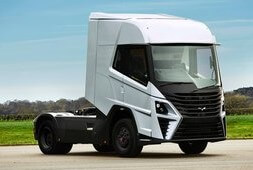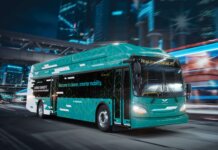Hydrogen Vehicle Systems (HVS), a leading hydrogen fuel cell truck manufacturer in the United Kingdom, has entered into a strategic collaboration with Edwin C Farrall Transport Ltd. (Farrall’s Group) to explore the integration of hydrogen fuel cell heavy good vehicles (HGVs) into Farrall’s fleet.
Farrall’s Group is a third-generation family transportation company based in northwest England. With a clear focus on delivering a sustainable road map of carbon emission reduction and management, the company has signed a memorandum of agreement (MOA) with HVS to commit to zero-emission commercial vehicle trials.
“Our team is continually looking at ways to reduce and improve our environmental emissions output,” says Matthew Farrall, managing director at Farrall’s Group. “We all have a responsibility to look after our environment, and as a family we are extremely conscious we must set a responsible example for all to follow. Our partnership with HVS allows us to explore the benefits of hydrogen fuel cell vehicles and helps us to deliver a greener running fleet to improve our impact on local communities.”
The MOA outlines the partnership’s objective to provide Farrall’s Group with HVS hydrogen fuel cell HGVs when these groundbreaking zero-emission vehicles become available for trial in late 2025. Sharing of vehicle data, TCO (total cost of ownership) modeling, route planning, infrastructure support and performance optimization are some of the benefits of the MOA partnership.
“Here at HVS, our focus is on collaborating with transport and logistics providers to help them achieve their net zero targets,” adds John McLeister, chief commercial officer for HVS. “We are closely aligned to the climate aims of the Farrall family and are looking forward to supporting them on their net-zero journey. Our close cooperation with the hydrogen supply chain will ensure that our vehicles offer a highly competitive TCO by supporting with the most appropriate hydrogen infrastructure for the organization, and providing a zero-emission fuel cell vehicle that offers heavier payloads, longer range and faster refueling compared with battery electric alternatives.”






